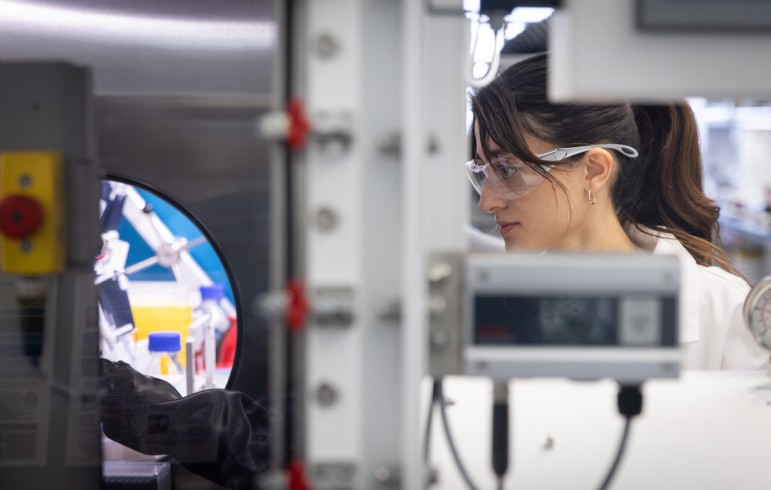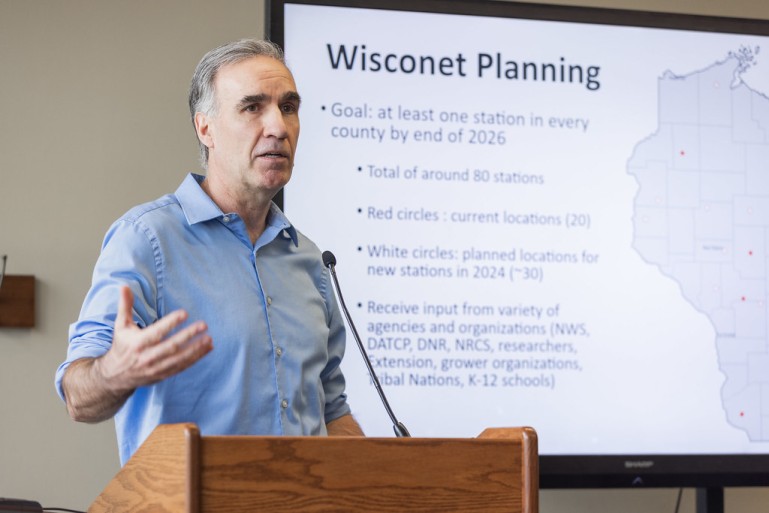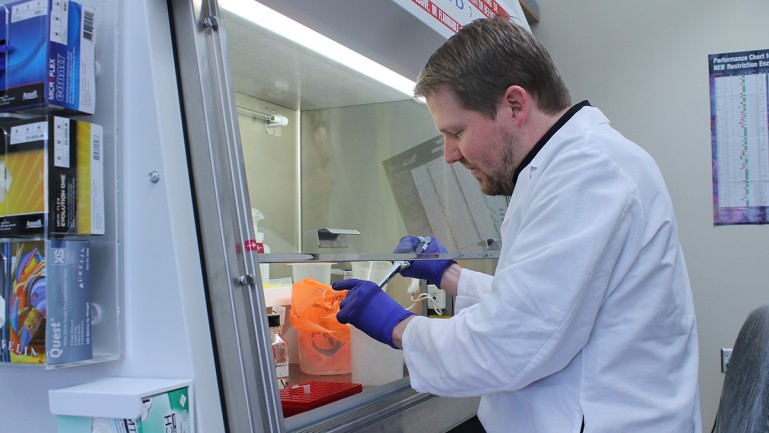The debate over energy consumption and its consequences is constantly evolving, whether the subject is fossil fuels or renewables. The Massive Open Online Course “Energy and the Earth” will give thousands of people an online forum in which to explore these topics.
“How air quality and energy affect each other is the single biggest story no one is hearing about,” says Tracey Holloway, University of Wisconsin–Madison professor of environmental studies and chair of this year’s Energy Summit, which will take place on Tuesday, October 13, 2015.
We don’t think about it when we turn on the faucet for a cold drink of water, but it takes quite a bit of energy to fill that glass. How much energy is a question that University of Wisconsin–Madison graduate students Andrew Behm, Andy Lick, and Annie Lord spent this past spring pursuing.
Genetics assistant professor Chris Hittinger and bacteriology assistant professor Garret Suen have been selected to receive Alfred Toepfer Faculty Fellow Awards.
Portable electronics — typically made of non-renewable, non-biodegradable and potentially toxic materials — are discarded at an alarming rate in consumers' pursuit of the next best electronic gadget.
Energy researchers at the University of Wisconsin–Madison are excited about the upcoming installation of three high-performance motor dynamometers in the high-bay lab of the Wisconsin Energy Institute (WEI) and in UW’s Engineering Hall.
On the same site in Milwaukee where the A. O. Smith Corporation once built airplane and auto parts for the military during both world wars, University of Wisconsin–Madison energy researchers are using state-of-the-art microgrid technology to help revitalize Milwaukee’s industry.



